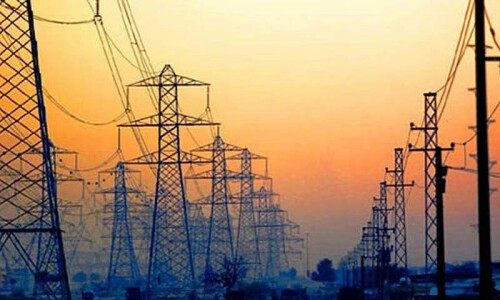THE UN’s Global Report on Trafficking in Persons 2024 is a sobering account of how the commodification of humans has reached dangerous levels. While some regions show improved detection and conviction rates following Covid-19 — up 25pc from before — the overall picture remains troubling. Perhaps most distressing is the surge in child trafficking, particularly in affluent nations, where young lives fleeing conflict and destitution find themselves trapped in exploitation. Another finding is that forced labour now exceeds sexual exploitation as a form of trafficking. And yet, global justice systems remain woefully unprepared to address this problem. The stark reality that one-third of cross-border trafficking involves African citizens underscores the urgent need for a coordinated global response to this crisis.
In South Asia, trafficking is a transnational issue. According to the report, 11pc of detected trafficking flows involve victims from South Asia. The report further reveals that forced labour (55pc of cases) and sexual exploitation (30pc) are the dominant forms of trafficking in the region. In Pakistan, like its neighbours, socioeconomic disparities and displacement, such as that caused by climate change, worsen vulnerabilities. Pakistan has seen particular risks to children, who are frequently forced into bonded labour or trafficked for begging and forced marriages. Despite some progress, such as the Prevention of Trafficking in Persons Act, 2018, justice systems are not keeping pace with evolving dynamics. The report notes that convictions for forced labour remain disproportionately low compared to detections, underlining the need for reform. While South Asia reported an overall increase in detections, numbers remain uneven across countries and are often hampered by weak data collection. Pakistan and its neighbours must collectively combat this scourge. Cooperation must be prioritised to disrupt cross-border trafficking networks, and governments should establish mechanisms for victim repatriation and rehabilitation. One cannot overstate the imperative of addressing the root causes of this malaise. Investment in public education, the creation of gainful employment, and provision of adequate social protection must form the cornerstones of our strategy. The public must be roused from its slumber and made cognisant of the dangers that lurk in their midst. The hour is late, and the need for action pressing. We cannot afford to delay our response to this assault on human dignity.
Published in Dawn, December 16th, 2024












































Dear visitor, the comments section is undergoing an overhaul and will return soon.